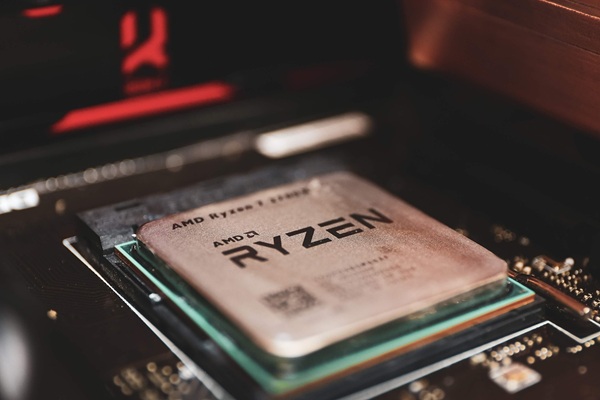
|
|
What is Processor Overclocking?
 Royalty Free Pixabay Image
Royalty Free Pixabay ImageUnderstanding CPU Overclocking: A Closer Look at Pushing Your Processor’s Limits
In the world of PC enthusiasts and gamers, CPU overclocking is often a topic
that sparks intrigue and excitement. The practice of overclocking is not limited to the
world of professional builders and hobbyists, as it can have a significant impact on
performance. But what exactly is CPU overclocking? In this article, we'll break down the
concept, explore the benefits and drawbacks, and provide an analogy to help explain this
practice.
What is CPU Overclocking?
CPU overclocking refers to the process of increasing a processor’s clock
speed beyond the manufacturer’s recommended specifications in order to boost its
performance. The clock speed, measured in gigahertz (GHz), determines how many
cycles a CPU can perform per second. By overclocking, users push the CPU to operate
at a higher frequency, which can result in faster processing times and an overall
performance increase in certain tasks.
However, this increase in performance comes with potential risks,
including heat generation, instability, and voiding warranties, all of which must be
carefully managed.
⚠ Warning:
If your a novice, I suggest working with
someone who has done it before. You could end up harming your system!
Overclocking a CPU is Like Tuning a Car Engine
To understand the concept of overclocking, imagine your CPU as a car
engine. When a car is designed and built, it’s tuned to operate optimally at a
highway speeds. With tuning you can achieve more horsepower or better fuel
efficiency.
However, just like in the world of car engines, pushing your CPU beyond
its designed limits requires a few important adjustments. In the car analogy, you
might need to upgrade the exhaust system to deal with extra heat or install a
turbocharger to handle the increased power. Similarly, when overclocking a CPU,
additional cooling solutions (like better fans or liquid cooling) may be necessary
to avoid overheating, and stability must be ensured through careful
tweaking.
Ultimately, while overclocking your CPU can result in faster
performance, just like tuning a car to go faster, there are trade-offs in terms of
heat, longevity, and risk.
All AMD Ryzen CPUs Can Be Overclocked
One of the standout features of AMD’s Ryzen processors is their
overclocking potential. Almost all Ryzen CPUs are unlocked, meaning that users can
freely adjust the clock speeds for improved performance. This flexibility makes AMD
Ryzen a popular choice for enthusiasts who want to extract every bit of power from
their processors.
Whether you’re using a Ryzen 5, Ryzen 7, or Ryzen 9, you can safely overclock most
models to gain a performance boost, assuming you have the right cooling solutions in
place. The ability to overclock can lead to better performance in gaming, rendering,
or other CPU-intensive tasks.
What Intel Processors Can Be Overclocked?
While AMD has a more straightforward approach to overclocking with its
unlocked processors, Intel has been a bit more selective. To overclock Intel
processors, you need to make sure that the CPU is part of Intel’s “K” or “KF”
series. For example, the Intel Core i9-13900K or the Core i7-13700KF are unlocked
processors that can be overclocked.
Processors like the Intel Core i5-12600K or i7-10700K also offer overclocking
capabilities. However, Intel’s non-K models, such as the standard i5 or i7,
typically come with locked multipliers and cannot be overclocked.
If you're planning on overclocking an Intel processor, be sure to select one of
these specific models, as others will not have overclocking potential.
Benefits of Overclocking a Processor
Improved Performance:
The most obvious benefit of overclocking is the performance increase.
When you raise the clock speed of your CPU, it can execute more tasks per second,
making your computer faster overall. This can be especially noticeable in gaming,
video editing, and tasks that require heavy computational
power.
Cost Efficiency:
Overclocking can be a way to get more performance without having to
purchase a more expensive, higher-end CPU. By overclocking a mid-tier processor, you
may be able to achieve near-high-end performance, which could save you money in the
long run.
Customization and Control:
Overclocking allows you to tailor your PC’s performance to suit your
specific needs. Whether you want more power for gaming or for content creation,
overclocking offers users more control over how their system
behaves.
Drawbacks of Overclocking a Processor
Increased Heat Generation:
As you push your CPU to run faster, it generates more heat. Without
proper cooling solutions—like high-performance air coolers or liquid cooling
systems—your CPU could overheat, leading to potential thermal throttling, crashes,
or even permanent damage.
Reduced CPU Lifespan:
Running a CPU at higher speeds than its original design intended can
result in increased wear and tear. Over time, the additional stress can reduce the
processor’s overall lifespan, making it less reliable in the long run.
System Instability:
Overclocking can sometimes cause instability, leading to crashes,
freezes, or blue screens. Achieving a stable overclock requires extensive testing
and fine-tuning, and even then, there’s no guarantee that your system will remain
completely stable in all situations.
Void Warranties:
Many manufacturers have strict policies when it comes to overclocking,
and in most cases, overclocking a CPU will void its warranty. This means that if
something goes wrong and the processor is damaged, you’ll likely have to pay for
repairs or replacements out of pocket.
Power Consumption:
Overclocking often increases the amount of power that your CPU requires.
This could lead to higher electricity costs and may also place extra strain on your
power supply unit (PSU), potentially leading to instability if the PSU isn’t
sufficient.
Conclusion
CPU overclocking is an exciting and rewarding way to squeeze more
performance out of your processor. By increasing clock speeds, you can enjoy faster
computing, whether for gaming, multitasking, or resource-heavy tasks. However,
overclocking comes with risks like overheating, system instability, and potential
hardware damage. It’s essential to weigh the benefits against the drawbacks, and
always ensure that you’re using the proper cooling solutions and settings to keep
your system running smoothly.
Remember, overclocking is not for everyone, and it requires a good understanding of
how your hardware operates. But for those who love pushing their systems to the
limit, it can be an enjoyable and worthwhile experience.